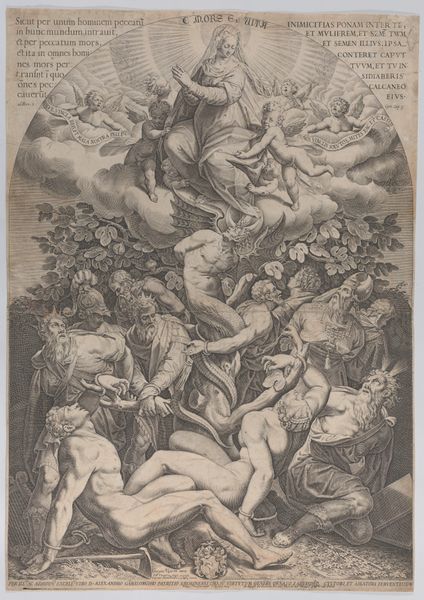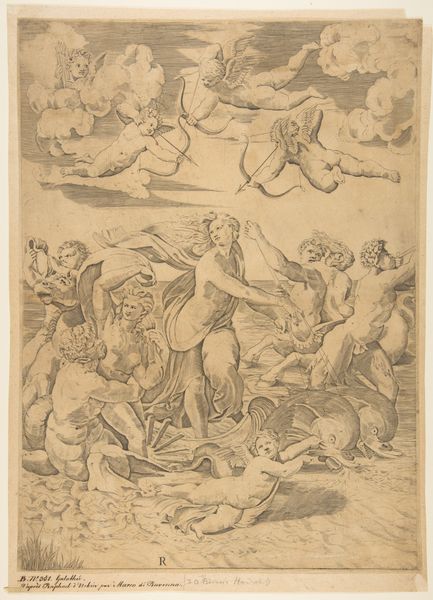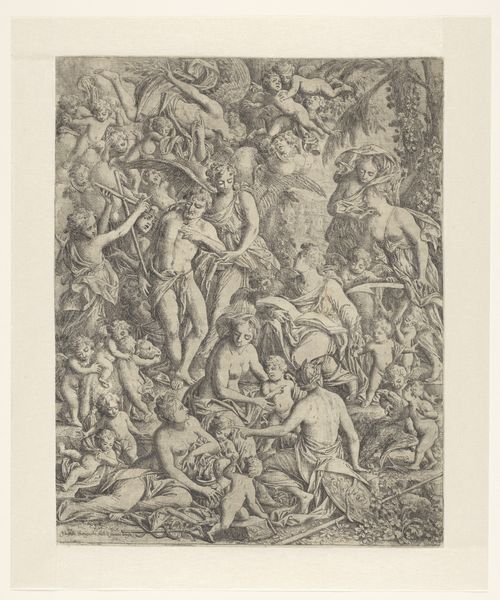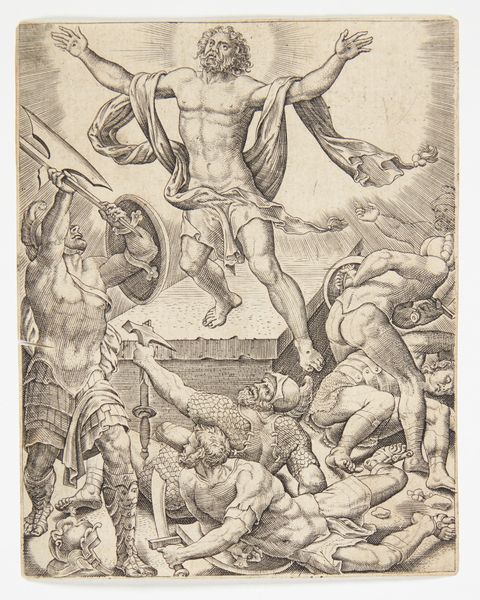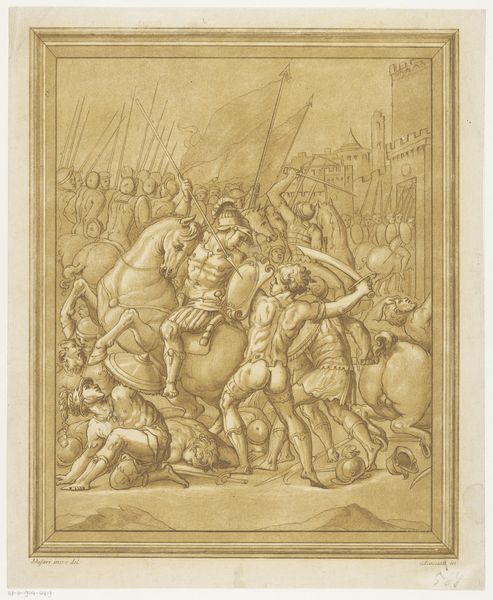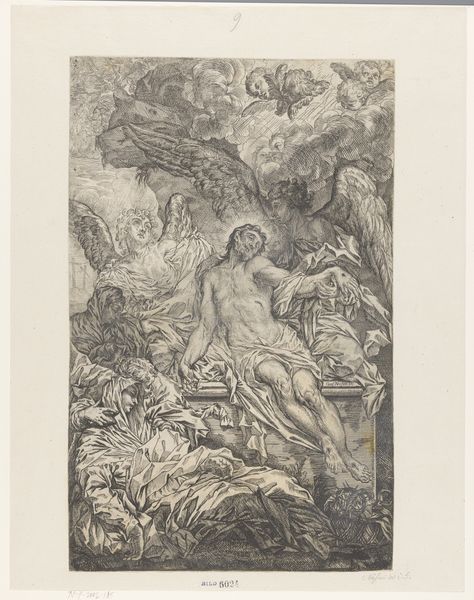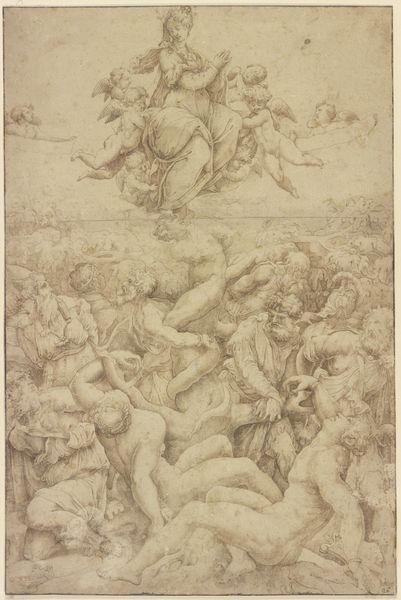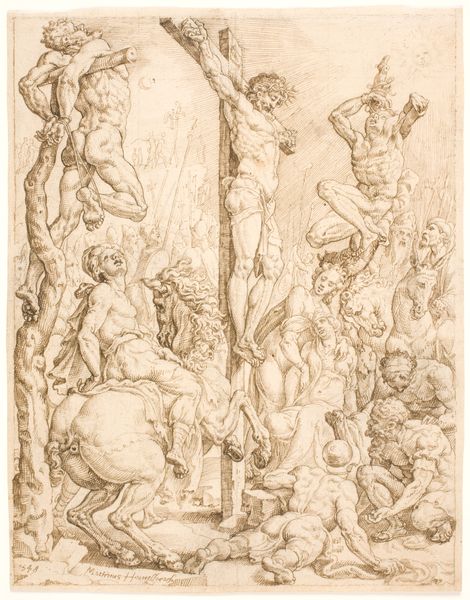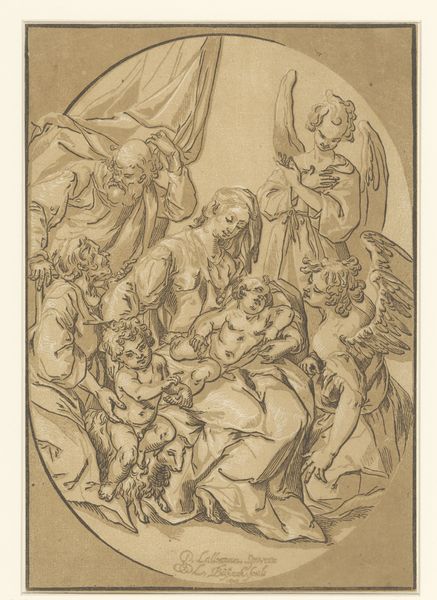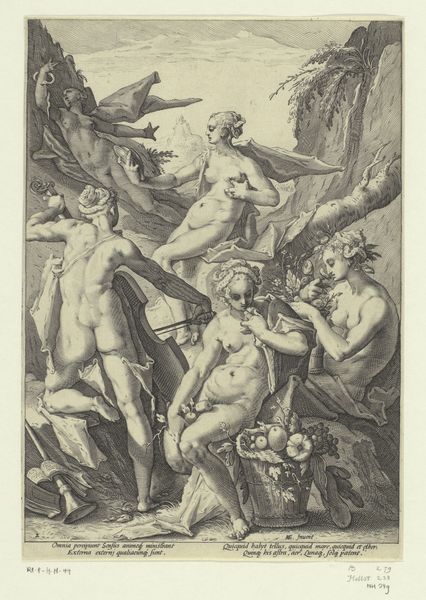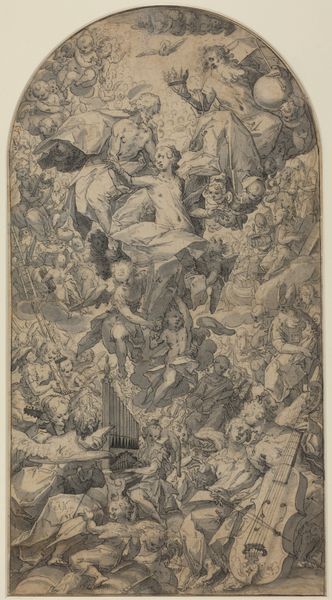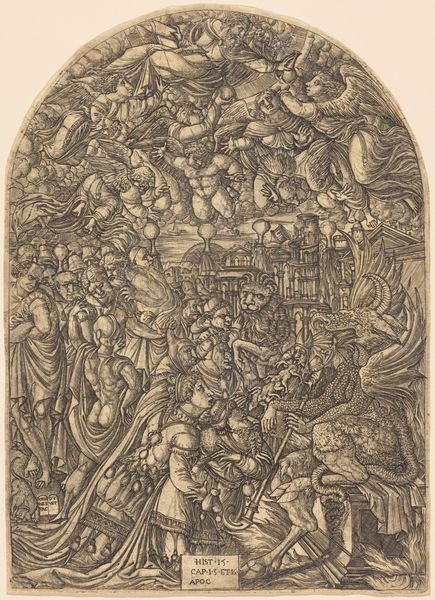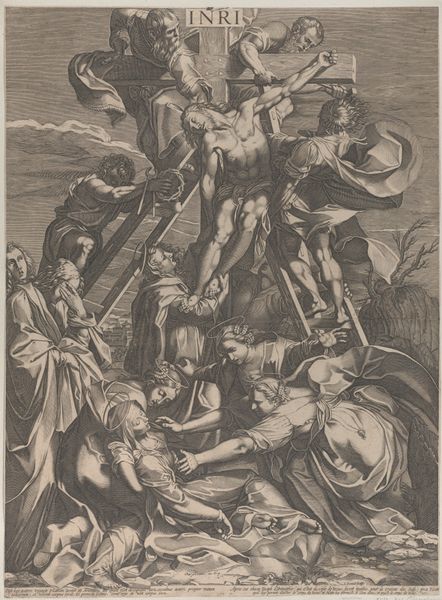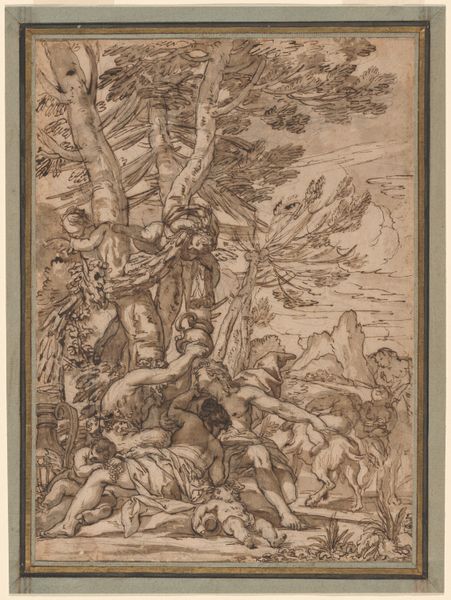
Dimensions: height 561 mm, width 376 mm
Copyright: Rijks Museum: Open Domain
Pierre Lélu created this sepia toned drawing called ‘Allegory on the Immaculate Conception’ some time around the late 18th century. The scene depicts the Virgin Mary, surrounded by cherubs, presiding over a mass of figures in various states of distress. This artwork is heavily embedded in the religious culture of its time, reflecting the Catholic doctrine of the Immaculate Conception, which was a significant point of theological discussion. Lélu, working in France, employs a visual language rooted in the traditions of religious art, but perhaps also comments on the social structures of his time. The figures below Mary, in their tormented states, might represent the earthly struggles from which the divine offers solace. Understanding this piece requires a look into both religious history and the social context of 18th-century France, resources for which can be found in theological studies and historical archives. The meaning of art is always contingent on its social and institutional context.
Comments
No comments
Be the first to comment and join the conversation on the ultimate creative platform.
